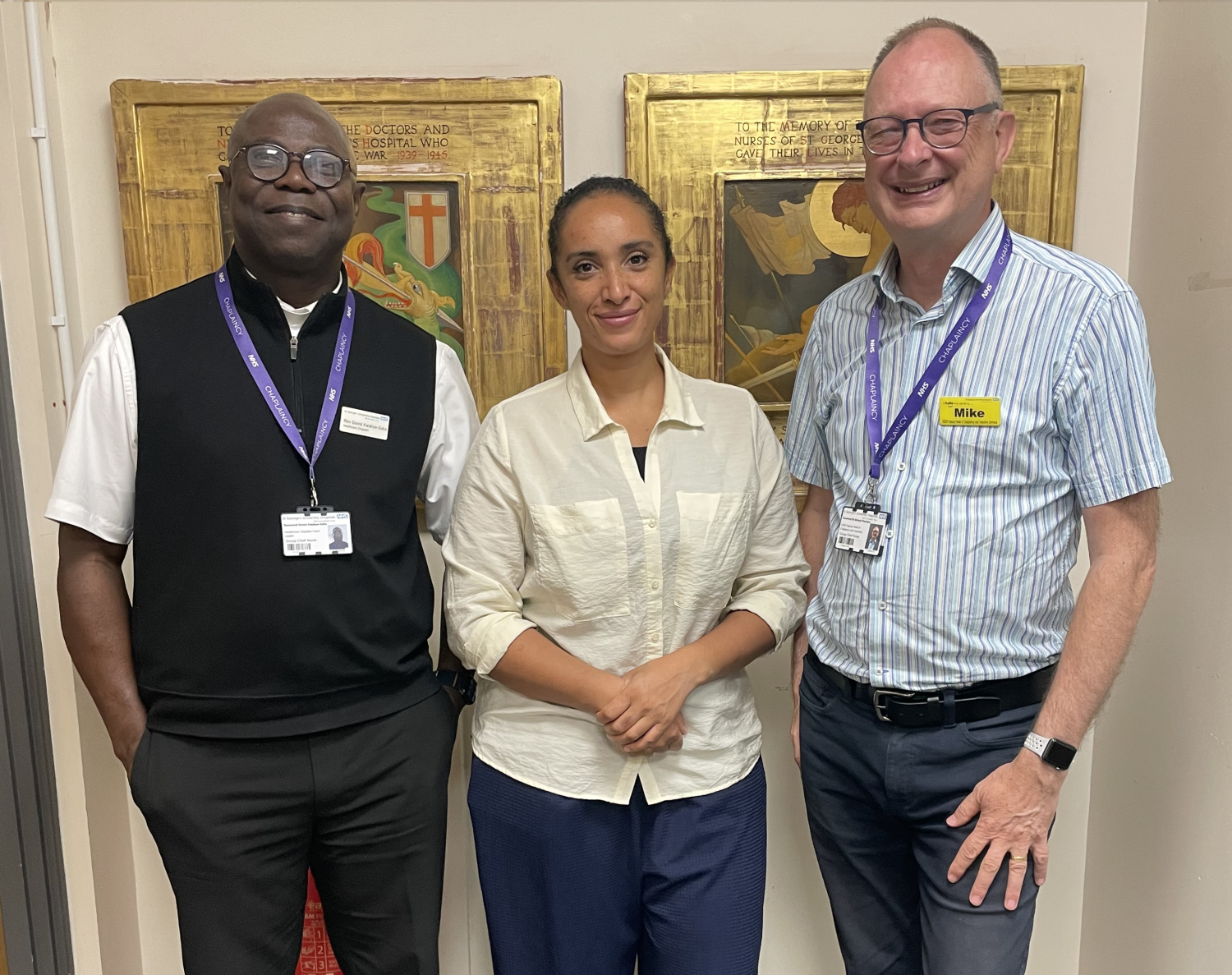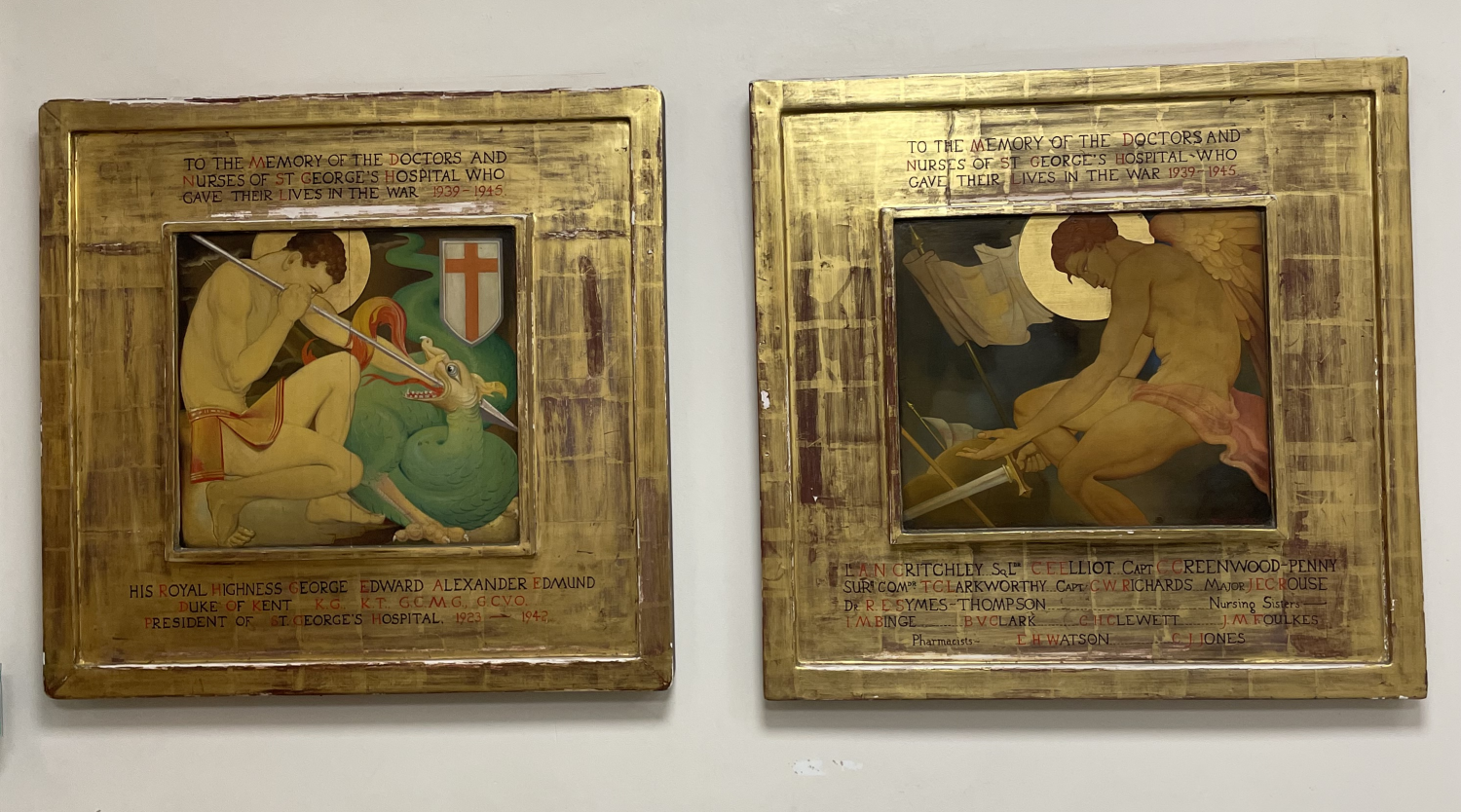Your team is responsible for three hospitals in South London and Surrey: can you tell us a bit about the GESH chaplaincy team and what you do?
We aim to be a compassionate, non-judgemental, listening ear that is available to everybody across our hospital estate. We're here to listen to people's concerns and their anxieties, and to help them navigate their hospital journey. We spend most of our time on the wards, visiting patients and supporting staff.
When we're all gathered together, we're a really diverse bunch. The team is predominantly Christian, but we have access to representatives from all the major religions. We speak 28 languages between us, so that helps us to represent the communities that we serve here.
What’s something that would surprise someone who has never made use of chaplaincy services?
It might surprise people that about 49% of the people we see would say they have no religious faith. We can be that independent, compassionate friend for them to help them navigate whatever they are facing whilst in hospital.
We’re here for everyone, and statistically, people who've engaged with chaplaincies have a quicker and more peaceful hospital journey.
What’s a day like at the chaplaincy?
The day may start very early - particularly for the chaplain that's on call. We can be called in anytime, day or night, if there’s an urgent need.
We offer religious help, rites, prayers and religious material if requested. We hold services in our chapel and prayer rooms. We often have people come to our spiritual care centre - particularly family members. We're available to talk, and to pray, if they request that.
We take some funerals. Occasionally, we perform baptisms and, even more occasionally, we perform marriage rites for those who would like to get married and are unlikely to leave the hospital again.
What does it look like to offer chaplaincy support at the end of life?
If we can, we much prefer to visit the patient while they’re still conscious. If they're able to communicate, quite often we can have quite meaningful conversations with them.
There are practical matters - they suddenly want to put their estates in order, or they want to put things right with their families. And then they have their existential questions - what's going to happen to me? It's a privilege to be there and help people journey through their own frame of reference. If they ask, then we can tell them what we believe, and I can give them my Christian understanding. But it's very patient led; we go where the patient wants to go.
More often, when patients are no longer conscious, then it’s about supporting family and friends; helping them to negotiate something they've probably not experienced before, and journeying with them through that.
You get such a variety of reactions from people: from those who are virtually shouting at their loved ones, ‘you can die now!’ because they can't hold the difficulty of that moment, to the opposite extreme: ‘don't you dare leave me!’ On the other hand, sometimes a person will hold on because they don't want to make it difficult for their loved ones, and their loved ones need to give them permission to go.
We can help people to die well by helping staff to make the setting more appropriate for their religious understanding. For instance, in some Hindu
traditions, a person needs to be near the floor when they die. Our role there is helping clinical staff culturally to understand why this patient is trying to lie on the floor and helping to enable that.

